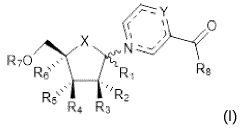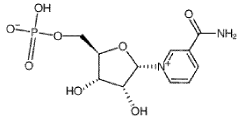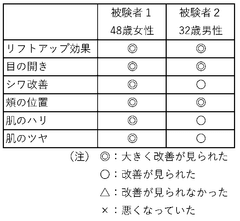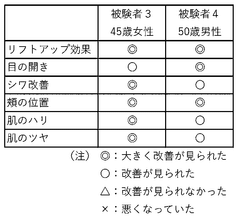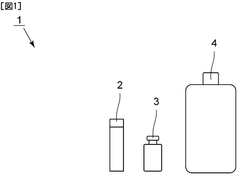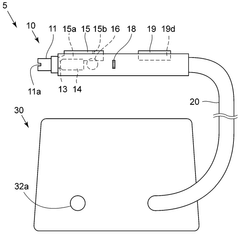NMN for Skin Health: Scientific Perspectives
NMN and Skin Health: Background and Objectives
Nicotinamide mononucleotide (NMN) has emerged as a promising compound in the field of skin health and anti-aging research. As a precursor to nicotinamide adenine dinucleotide (NAD+), NMN plays a crucial role in cellular energy metabolism and various biological processes. The exploration of NMN's potential benefits for skin health has gained significant attention in recent years, driven by the growing demand for effective anti-aging solutions and the increasing understanding of cellular aging mechanisms.
As individuals age, the skin undergoes various changes, including decreased collagen production, reduced elasticity, and impaired barrier function. These changes contribute to the visible signs of aging, such as wrinkles, fine lines, and loss of firmness. The quest for interventions that can mitigate or reverse these age-related skin changes has led researchers to investigate the potential of NMN in promoting skin health.
The primary objective of exploring NMN for skin health is to elucidate its mechanisms of action and potential benefits in maintaining skin integrity and function. Researchers aim to understand how NMN supplementation may influence cellular processes within the skin, such as DNA repair, mitochondrial function, and collagen synthesis. Additionally, there is a focus on determining the optimal delivery methods and dosages for maximizing NMN's efficacy in skin applications.
Another key goal is to assess the safety and long-term effects of NMN supplementation on skin health. As with any potential therapeutic compound, it is crucial to establish a comprehensive safety profile and identify any potential side effects or contraindications. This includes evaluating the impact of NMN on different skin types, ages, and conditions to ensure its suitability for a wide range of individuals.
Furthermore, the research aims to explore the potential synergistic effects of combining NMN with other established skincare ingredients or treatments. This approach could lead to the development of more effective and comprehensive skincare formulations that address multiple aspects of skin aging simultaneously.
As the field of NMN research for skin health continues to evolve, scientists are also investigating its potential applications beyond cosmetic benefits. This includes exploring its role in wound healing, skin barrier function, and protection against UV-induced damage. The ultimate goal is to translate these scientific findings into practical applications that can improve skin health and quality of life for individuals across different age groups and skin conditions.
Market Analysis for NMN Skincare Products
The global market for NMN (Nicotinamide Mononucleotide) skincare products has experienced significant growth in recent years, driven by increasing consumer awareness of the potential benefits of NMN for skin health. This market segment is part of the broader anti-aging skincare industry, which is projected to reach substantial value in the coming years.
The demand for NMN skincare products is primarily fueled by the growing aging population worldwide and the increasing desire for effective anti-aging solutions. Consumers are becoming more educated about the role of cellular health in skin aging, leading to a surge in interest for products that claim to address these concerns at a molecular level.
Key market drivers include the rising disposable income in developing countries, the growing influence of social media and beauty influencers, and the increasing acceptance of advanced skincare technologies. The Asia-Pacific region, particularly countries like Japan, South Korea, and China, has emerged as a significant market for NMN skincare products, owing to the strong cultural emphasis on skincare and beauty routines.
The market is characterized by a mix of established skincare brands and new entrants specializing in NMN-based formulations. Major cosmetic companies are investing in research and development to incorporate NMN into their product lines, recognizing its potential as a differentiator in the competitive skincare market.
Consumer preferences in the NMN skincare market lean towards products that offer multiple benefits, such as wrinkle reduction, skin firming, and improved skin texture. There is also a growing demand for natural and organic formulations that include NMN, reflecting the broader trend towards clean beauty products.
The e-commerce channel has played a crucial role in the distribution of NMN skincare products, allowing for direct-to-consumer sales and enabling smaller brands to reach a global audience. However, traditional retail channels, including department stores and specialty beauty retailers, remain important, especially for premium and luxury NMN skincare lines.
Challenges in the market include the need for more extensive clinical studies to substantiate the efficacy of NMN in topical applications, regulatory hurdles in different countries, and the relatively high cost of NMN as an ingredient, which can impact product pricing and accessibility.
Despite these challenges, the market outlook for NMN skincare products remains positive. Industry analysts predict continued growth, driven by ongoing research into the benefits of NMN for skin health, technological advancements in formulation and delivery systems, and the expanding global middle class with increasing interest in premium skincare solutions.
Current State of NMN Research in Dermatology
The field of NMN (Nicotinamide Mononucleotide) research in dermatology has been rapidly evolving in recent years, with significant advancements in understanding its potential benefits for skin health. Current studies primarily focus on NMN's role in cellular energy production and its impact on skin aging processes.
Researchers have identified that NMN acts as a precursor to NAD+ (Nicotinamide Adenine Dinucleotide), a crucial coenzyme involved in various cellular functions. In the context of skin health, NAD+ levels naturally decline with age, leading to decreased cellular energy and impaired DNA repair mechanisms. This decline is associated with various signs of skin aging, including wrinkles, loss of elasticity, and reduced barrier function.
Recent investigations have demonstrated that topical application of NMN can effectively penetrate the skin and increase local NAD+ levels. This has been shown to enhance mitochondrial function in skin cells, promoting energy production and cellular repair processes. Additionally, NMN supplementation has been observed to stimulate the production of key structural proteins such as collagen and elastin, which are essential for maintaining skin firmness and elasticity.
Several studies have explored the potential of NMN in protecting skin cells from UV-induced damage, a major contributor to premature skin aging. Preliminary results suggest that NMN may enhance the skin's natural defense mechanisms against oxidative stress and DNA damage caused by UV radiation. This protective effect is attributed to NMN's ability to boost cellular energy and activate sirtuins, a class of proteins involved in cellular stress response and longevity.
Clinical trials investigating the efficacy of NMN in improving various aspects of skin health are currently underway. Early results indicate promising outcomes in terms of improved skin hydration, reduced appearance of fine lines and wrinkles, and enhanced overall skin texture. However, it is important to note that many of these studies are still in their early stages, and more comprehensive, long-term research is needed to fully validate these findings.
The current state of NMN research in dermatology also extends to its potential applications in treating specific skin conditions. Preliminary studies have shown promising results in using NMN to alleviate symptoms of inflammatory skin disorders, such as psoriasis and eczema. The anti-inflammatory properties of NMN, coupled with its ability to promote cellular repair, make it an intriguing candidate for developing novel therapeutic approaches in dermatology.
While the current research on NMN in dermatology is encouraging, it is essential to acknowledge that the field is still in its early stages. Many of the existing studies have been conducted in vitro or on animal models, and more extensive human clinical trials are necessary to establish the full range of benefits and potential side effects of NMN in skin health applications.
Existing NMN-based Skincare Solutions
01 NMN for skin rejuvenation and anti-aging
NMN (Nicotinamide Mononucleotide) has shown potential in promoting skin rejuvenation and combating signs of aging. It helps to increase NAD+ levels in skin cells, which can improve cellular energy production, DNA repair, and overall skin health. This can lead to reduced appearance of wrinkles, improved skin elasticity, and a more youthful complexion.- NMN for skin rejuvenation and anti-aging: NMN (Nicotinamide Mononucleotide) has shown potential in promoting skin rejuvenation and combating signs of aging. It helps to increase NAD+ levels in skin cells, which can improve cellular energy production, enhance DNA repair mechanisms, and boost collagen synthesis. This leads to improved skin elasticity, reduced wrinkles, and a more youthful appearance.
- NMN for skin barrier function and hydration: NMN supplementation has been found to enhance skin barrier function and improve hydration. By supporting the production of ceramides and other lipids essential for skin barrier integrity, NMN helps to reduce transepidermal water loss and maintain skin moisture. This results in smoother, more supple skin and improved overall skin health.
- NMN for UV protection and DNA repair: Research suggests that NMN can provide protection against UV-induced skin damage and enhance DNA repair mechanisms in skin cells. By boosting cellular energy and activating sirtuins, NMN helps to mitigate oxidative stress and reduce the formation of sunburn cells, potentially lowering the risk of skin cancer and photoaging.
- Topical formulations of NMN for skin health: Topical formulations containing NMN have been developed to directly target skin cells and improve various aspects of skin health. These formulations may include creams, serums, or masks that deliver NMN to the skin, promoting local NAD+ production and enhancing skin cell function. Such products aim to improve skin texture, reduce pigmentation, and provide anti-aging benefits.
- Combination of NMN with other skin-beneficial compounds: NMN is often combined with other skin-beneficial compounds to create synergistic effects for overall skin health. These combinations may include antioxidants, vitamins, peptides, or other NAD+ precursors to enhance the efficacy of NMN in improving skin appearance, texture, and function. Such formulations aim to provide comprehensive skin care solutions targeting multiple aspects of skin health.
02 NMN in skincare formulations
NMN is being incorporated into various skincare formulations to enhance skin health. These formulations may include creams, serums, or other topical applications that deliver NMN directly to the skin. The addition of NMN to skincare products aims to improve skin hydration, texture, and overall appearance.Expand Specific Solutions03 NMN for UV protection and damage repair
Research suggests that NMN may help protect the skin from UV-induced damage and assist in repairing existing damage. By boosting cellular energy and enhancing DNA repair mechanisms, NMN could potentially reduce the harmful effects of sun exposure on the skin and aid in the recovery of sun-damaged skin cells.Expand Specific Solutions04 Combination of NMN with other skin-beneficial compounds
NMN is being studied in combination with other skin-beneficial compounds to create synergistic effects for skin health. These combinations may include antioxidants, vitamins, or other NAD+ precursors to enhance the overall benefits for skin health and appearance.Expand Specific Solutions05 NMN delivery methods for improved skin absorption
Various delivery methods are being developed to improve the absorption and efficacy of NMN in skincare applications. These may include novel formulation techniques, encapsulation technologies, or other methods to enhance NMN penetration into the skin and increase its bioavailability for optimal skin health benefits.Expand Specific Solutions
Key Players in NMN Production and Skincare Industry
The NMN for skin health market is in its early growth stage, characterized by increasing research and development activities. The market size is expanding as more companies recognize the potential of NMN in skincare applications. Technologically, the field is still evolving, with varying levels of maturity among key players. Companies like ChromaDex, Inc. and Mirailab Bioscience, Inc. are at the forefront, demonstrating advanced capabilities in NMN research and product development. Academic institutions such as Washington University in St. Louis and the University of Maryland are contributing significant scientific insights, while established corporations like Unilever and BASF are exploring NMN's integration into their skincare portfolios. This diverse landscape indicates a competitive and rapidly developing market with substantial growth potential in the coming years.
Mirailab Bioscience, Inc.
Oriental Yeast Co., Ltd.
Core Scientific Studies on NMN and Skin Health
- Development of cosmetic compositions incorporating nicotinamide mononucleotide (NMN) or its derivatives, which are used to prevent and treat signs of aging like wrinkles, skin roughness, and loss of elasticity without causing allergic reactions, by improving skin hydration and firmness.
- A multi-component skin penetration system using a first composition with human stem cell culture solution and a second composition with NMN (nicotinamide mononucleotide) applied separately or as a mixture, adjusted with a conditioning agent like purified water, to enhance skin penetration and provide a youthful appearance effect.
Regulatory Framework for NMN in Cosmetics
The regulatory framework for NMN (Nicotinamide Mononucleotide) in cosmetics is a complex and evolving landscape that varies significantly across different regions and countries. In the United States, the Food and Drug Administration (FDA) oversees the regulation of cosmetic products, including those containing NMN. Under the Federal Food, Drug, and Cosmetic Act, cosmetic products and their ingredients are not subject to pre-market approval, except for color additives. However, manufacturers are responsible for ensuring the safety of their products and ingredients.
In the European Union, the regulatory framework for cosmetics is more stringent. The EU Cosmetics Regulation (EC) No 1223/2009 requires all cosmetic products to undergo a safety assessment before being placed on the market. NMN, as a relatively new ingredient in cosmetics, would need to be thoroughly evaluated for its safety profile and potential risks before being approved for use in cosmetic formulations within the EU.
Japan, known for its advanced cosmetics industry, has a regulatory system that falls between the US and EU approaches. The Japanese Pharmaceutical Affairs Law governs cosmetics, and while pre-market approval is not required for most cosmetic ingredients, manufacturers must ensure product safety and comply with specific regulations regarding ingredient use and labeling.
China has implemented a unique regulatory system for cosmetics, including a mandatory animal testing requirement for imported cosmetics. However, recent changes in regulations have opened up possibilities for non-animal testing methods, which could potentially benefit novel ingredients like NMN in the future.
The global regulatory landscape for NMN in cosmetics is further complicated by its dual nature as both a potential cosmetic ingredient and a dietary supplement. In some jurisdictions, the line between cosmetics and dietary supplements can be blurred, leading to regulatory challenges. For instance, in the US, NMN's status as a dietary supplement has been under scrutiny, which could indirectly impact its use in cosmetics.
As research on NMN's benefits for skin health continues to emerge, regulatory bodies worldwide are likely to develop more specific guidelines for its use in cosmetic products. This may include establishing safe concentration limits, specific labeling requirements, and standardized testing protocols to ensure product safety and efficacy.
Manufacturers and researchers working with NMN in cosmetic applications must stay informed about the evolving regulatory landscape across different markets. Compliance with diverse regulatory frameworks will be crucial for the successful development and commercialization of NMN-based skincare products globally.
Safety and Efficacy Considerations for Topical NMN Use
The safety and efficacy of topical NMN (Nicotinamide Mononucleotide) application for skin health are critical considerations in the development and use of NMN-based skincare products. Current research suggests that NMN may offer potential benefits for skin health, including improved cellular energy production, enhanced DNA repair, and increased collagen synthesis. However, the long-term effects and optimal dosage for topical application remain areas of ongoing investigation.
Safety considerations for topical NMN use primarily focus on skin irritation, allergic reactions, and potential systemic absorption. While NMN is generally considered safe when taken orally, its topical application requires careful evaluation. Preliminary studies have shown minimal adverse effects, but larger-scale clinical trials are needed to establish a comprehensive safety profile. Researchers are particularly interested in understanding the potential for NMN to penetrate the skin barrier and enter the bloodstream, which could have implications for systemic effects.
Efficacy studies on topical NMN have demonstrated promising results in laboratory and small-scale human trials. These studies have shown improvements in skin hydration, elasticity, and reduction in the appearance of fine lines and wrinkles. The mechanism of action is believed to be related to NMN's role in boosting NAD+ levels in skin cells, which in turn supports various cellular processes crucial for skin health and appearance.
However, the optimal concentration and formulation of NMN for topical use are still subjects of debate. Researchers are working to determine the most effective delivery systems that can ensure NMN stability and enhance its penetration into the skin. Factors such as pH, molecular size, and the use of penetration enhancers are being explored to maximize the efficacy of topical NMN products.
Long-term studies are essential to fully understand the sustained benefits and potential risks of regular topical NMN use. Questions remain about the effects of prolonged use on skin metabolism and whether there could be any negative impacts on natural NAD+ production pathways in the skin. Additionally, research is needed to explore potential interactions between topical NMN and other skincare ingredients or medications.
As the field progresses, regulatory considerations will play a crucial role in the development and marketing of NMN-based skincare products. Establishing clear guidelines for safety testing, efficacy claims, and product labeling will be necessary to ensure consumer safety and product reliability. Collaboration between researchers, dermatologists, and regulatory bodies will be vital in creating a framework for the responsible development and use of topical NMN products in the skincare industry.
